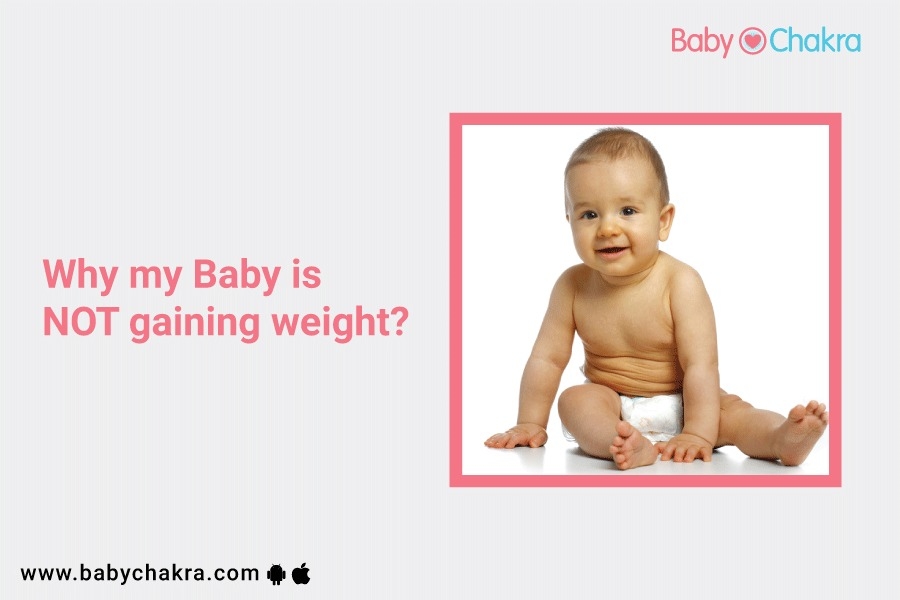
Why my baby is NOT gaining weight?
17 Nov 2021 | 3 min Read
Babychakra
Author | 1369 Articles
Newborn babies tend to lose 7 to 8 per cent of their weight after a few days of their birth. And this is normal for a healthy, full-term, and exclusively breastfed baby. However, by the time they reach the age of 2 weeks, they regain the lost weight. By the end of their first year, they should have tripled their birth weight.
Sometimes, though, a baby may not gain weight as expected. Learn about the reasons why your baby may not be gaining weight.
Not Taking in Enough Calories
Healthy, full-term, breastfed babies typically breastfeed every 2 to 3 hours. Formula-fed babies need 30 to 60 ml of formula about every 3 hours. As their tummies grow, the time between feedings increases, but some babies may not get the calories they need. But why?
Sleepy baby. Newborns can be sleepy, so wake your baby, gently tickle their feet, remove blankets or swaddles, or ease open their diaper. Short or infrequent nursing sessions may also mean that your baby is not taking in enough calories.
Learning curve. Babies need to learn how to coordinate sucking, breathing, and swallowing. Some may take a little longer than others to get it all down.
Latching issues. Ensure your baby is latching on deeply. To breastfeed well, let your child get a good latch. If your child is struggling, work with a lactation consultant to rule out issues, such as a tongue tie or lip tie.
Starting solids. Paediatricians advise starting solids after six months of age when a baby is showing readiness. Even after starting solids, most of their calories comes from breast milk or formula for the first year. Make sure that your baby is still getting regular breast milk or formula feeds even after starting solids.
Not Absorbing The Calories
Some babies may be taking in enough calories — but not absorbing them. Here are some of the reasons behind this:
Reflux. Gastroesophageal reflux (GERD) can cause a baby to spit up whatever they have consumed frequently. The timing and amount of spit up affect their ability to absorb enough calories from the feeding.
Food allergies and sensitivities. A small percentage of babies have a food allergy or lactose intolerance. Seek medical care if you suspect an allergy. Gluten and dairy products can be challenging for your baby to digest and irritate their gut, leading to diarrhoea. If you’re breastfeeding and your baby suffers from sensitivities, consider tracking your diet to evaluate whether a dietary change can help treat diarrhoea. If your baby is formula-fed, try changing the formula.
Jaundice. Research has shown that babies with severe jaundice are more likely to experience weight loss.
They’re burning too many calories.
Some babies need extra calories because they quickly metabolise the calories that they take in.
Premature babies. Babies born before 37 weeks need more calories than full-term babies. Keep working on breastfeeding — it’ll get easier as they develop. You can discuss supplemental feeding with your doctors.
Breathing difficulties. Babies with breathing difficulties need more calories to make up for the extra effort they need to exert themselves and promote tissue growth.
Heart disease. Research shows that children with some heart diseases utilise 40% more energy.
Hope find this article helpful; please hit the ‘LIKE’ button and ‘SHARE’ it with your friends and family.
A


Related Topics for you
Suggestions offered by doctors on BabyChakra are of advisory nature i.e., for educational and informational purposes only. Content posted on, created for, or compiled by BabyChakra is not intended or designed to replace your doctor's independent judgment about any symptom, condition, or the appropriateness or risks of a procedure or treatment for a given person.
